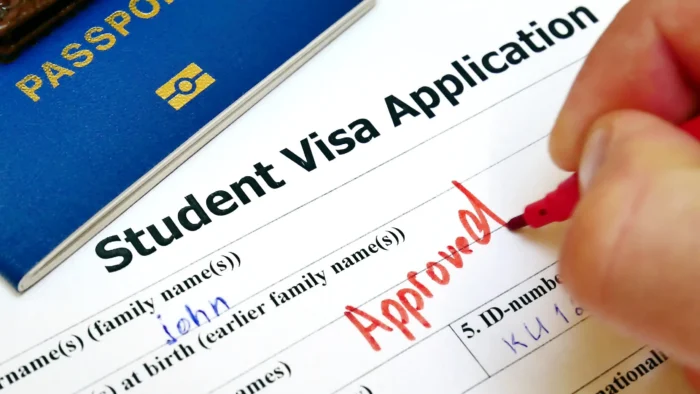
Every year, thousands of students from around the world apply for student visas to study in the United States. Over 300,000 students successfully get their visas, but thousands more miss one or more crucial steps on that path. Here are some common mistakes students make when applying and what you can do to avoid them.
1. Not Getting an Attorney
The first thing an international student should do is invest in a student visa attorney. The American legal system can be expensive, slow, and messy. Mistakes may cost you not only your visa but also any future chances of visiting the United States. It’s worth hiring someone who knows the ins and outs of the system before applying.
Even though the forms may look straightforward online, they can get complicated very quickly. If English is not your first language, it helps to have a translator to guide you through this process! A student visa attorney can help you in many other ways, so it’s worth your time and money.

2. Getting the Wrong Student Visa
Applying for the wrong student visa is one of the easiest mistakes you can make. There are three different types of student visas: F-1, J-1, and M-1. They can be roughly divided into “academic students,” “instructors,” and “vocational programs,” respectively. The F-1 visa is the most common.
Selecting the wrong visa may force you to start over—or, worse, cause you to be banned from entering the country. While you may think you know which visa you need, it is still worth consulting a student visa attorney, just in case.
3. Lack of Proper Finances
The U.S. is one of the most expensive places to get an education. Tuition costs for international undergraduate students can run anywhere from 18,000–62,000 dollars per year. That’s not counting textbooks, food, and other supplies!
The U.S. government will often require students to show proof of their financial stability. Proof of funds can be confirmed via documents such as a scholarship or statement of financial aid. Bank statements or employment checks can also qualify. Check with an official source to see what documents do or do not count.
Prospective students desiring visas should consider how they will pay for their education and be ready to present their case. Scholarships and sponsorships are both valid sources of funding. An immigration attorney will help you find the right documents for your application, including what will and will not suffice.

4. Not Filling Out the Paperwork Correctly
The powers that be will watch your forms for mistakes. They see millions of papers like yours every day and will use any errors to disqualify you. Missing a section may mean you don’t get the visa (or worse). Some errors are so bad that you can get banned from the country.
Although uncommon, mistakes on your student visa can have serious consequences. Bans from traveling to the United States can range from 3–20 years. Some crimes that are okay in some parts of the world will not be in the U.S. This can result in unwarranted jail time. And unlike some parts of your student visa, they will not be intuitive, either.
Even though the process is minimally automated, getting things right the first time will make it easier for everyone involved. Follow all instructions carefully to make processing your visa as easy as possible. Ask the United States embassy or consulate any questions before submitting your forms. A good attorney will make sure every aspect of your application is in good order before you send it off.
5. Missing Deadlines
The wait times for student visas can vary. They can be issued up to 365 days before your trip to the United States. Apply for your visa at least 90 days before classes start and prepare for things to take longer. Every city has a different wait time for interviews. The length of these lines also depends on what type of student visa you need, so make sure you get the visa that best suits your needs.
However, be careful. Students aren’t allowed to enter the United States until 30 days before the start date. You must also be accepted by an educational institution before applying; the start of their school year might affect your application. A good immigration lawyer can tell you the best time to apply.
Ideally, you should apply for your student visa as soon as possible. An immigration lawyer will ensure you pick the right path from the start. They can also tell you about the best timing for your student visa.

6. Not Preparing for the Interview
As with many types of visas, student visas require an interview as part of their process. Prospective international students must not only look their best and study what kinds of questions might come up but also make sure they have all the necessary documents before coming to the U.S. embassy. Ask your immigration lawyer about any of these documents before you go into your interview. Come in prepared!
The “intent to return” is a hidden topic beneath your interview. Do not mention anything like online classes. Avoid talking about any family you have in the United States. They will look for reasons to think that you can either get your college degree in your home country or that you will not return immediately after your degree. The better you can convince them that your stay in the United States will be temporary, the more likely you are to get the visa. Your goal is to convince the interviewer that you must live in the United States for your time at school—no more, no less.
Conclusion
Getting a student visa requires just as much paperwork and attention to detail as any other legal process. Those complications make hiring a visa attorney worth it. They can also ensure you apply for the correct visa and help you prepare for the interview.
















